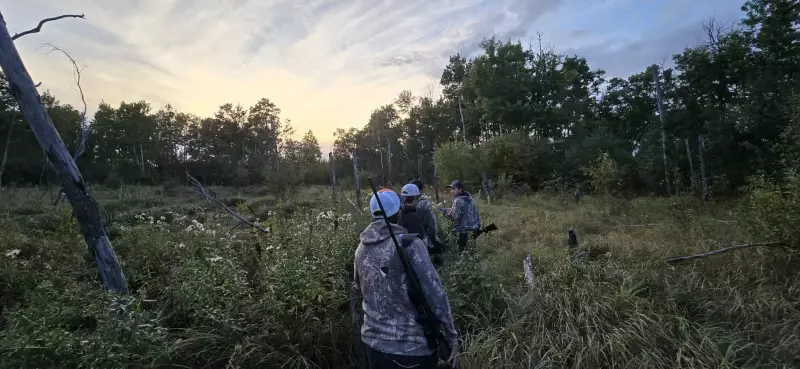
In a remarkable display of community solidarity and traditional values, Little Bone First Nation has undertaken a significant initiative to address food security among its most vulnerable members. The community recently distributed an impressive 3,500 pounds of wild game meat to elders and families facing hardship.
A Tradition of Sharing and Sustenance
The distribution event saw community members come together to receive various types of traditionally harvested game, including deer, elk, and moose. This initiative represents more than just food provision—it's a continuation of cultural practices that have sustained Indigenous communities for generations.
Chief Mark Arcand emphasized the deeper significance of the program, stating that it reflects the community's commitment to caring for one another during difficult economic times. "This is about ensuring our elders and those struggling don't have to worry about where their next meal is coming from," Arcand explained.
Addressing Food Security Through Traditional Means
The massive meat distribution serves multiple important purposes within the community:
- Providing high-quality, nutrient-rich protein to those most in need
- Reducing financial pressure on families facing economic challenges
- Preserving cultural connections to traditional food sources
- Strengthening community bonds through shared resources
The initiative comes at a critical time when many remote and Indigenous communities across Canada are experiencing heightened food insecurity and rising living costs.
Community Response and Future Plans
Elders and community members expressed profound gratitude for the initiative, noting that the distribution of traditional game meat holds cultural significance beyond mere nutrition. Many recipients highlighted how the program helps maintain connections to their heritage while addressing practical needs.
Chief Arcand indicated that the success of this distribution has inspired discussions about making similar initiatives a regular occurrence. The community is exploring ways to sustainably continue providing traditional foods to those in need while honoring cultural practices and environmental stewardship.
This powerful example of community-led food security demonstrates how traditional knowledge and cultural values can provide meaningful solutions to contemporary challenges facing Indigenous communities across Canada.





